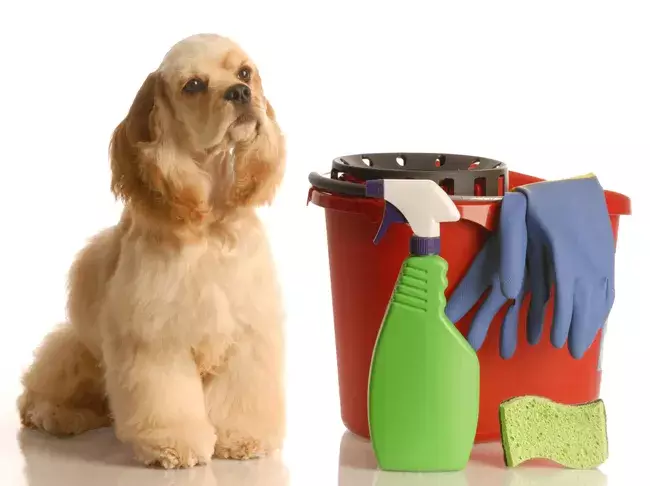In modern households, cleaning products are ubiquitous. They promise a pristine environment but often come with hidden dangers, particularly for our pets. Current trends in canine health reveal alarming statistics: the incidence of cancer in dogs is on the rise, mirroring the increase in human cancer rates. This unsettling connection prompts a deeper examination of the environmental factors influencing the health of beloved animals, largely centering around the chemicals found in household products.
Indoor Air Quality: A Silent Threat
Most pet owners are unaware of the indoor air pollution that rages within their homes. Research indicates that indoor air pollution can be significantly worse than outdoor pollution—sometimes by a factor of five, and in extreme cases, even more. A crucial 1992 report by the U.S. Environmental Protection Agency (EPA) confirmed that over half of indoor air contaminants stem from common household cleaners and pesticides. For pet owners, this is particularly distressing, as our four-legged companions are at greater risk due to their unique physiological traits.
Unlike humans, pets tend to be more susceptible to the toxic effects of chemicals, largely because of their faster metabolism and smaller body sizes. When exposed to harmful cleaning agents, pets absorb these toxins at a higher rate, leading to potential health complications. Elevated levels of certain chemicals can accumulate in their bodies, which has led to increased instances of allergies and even cancers that were previously rare in animals.
A significant factor in this risk involves the prevalence of cancer among our canine friends. According to the Morris Animal Foundation, one in four dogs will succumb to the disease, making cancer the leading cause of illness-related death in dogs older than two years. This troubling statistic has caught the attention of researchers, prompting a collaborative initiative involving major institutions dedicated to understanding and combating this health crisis.
A closer look at the substances we use reveals a concerning link between household cleaners and serious health conditions. Specific chemicals found in these products, such as alkylphenols and their derivatives, have been scrutinized for their potential to cause tumors—especially in female animals. Particularly concerning is the rise of mammary tumors in unspayed female dogs, which develop at four times the rate of women suffering from breast cancer. What’s even more alarming is that research by the National Library of Medicine has identified multiple widely-used cleaners containing these aggressive toxins.
Additionally, the ongoing investigation by the National Cancer Institute into canine malignancies reflects a growing awareness of how our environmental choices can impact animal health, offering a unique perspective on cancer research that could one day yield breakthrough insights.
The Shift Towards Safer Alternatives
Fortunately, growing awareness has led to a shift in consumer behavior. The market now offers a variety of organic and environmentally friendly cleaning alternatives that are not only effective but also affordable. Many grocery stores stock cleaning products made from natural ingredients that pose little to no risk to pets or humans alike. Furthermore, a wealth of online resources and guides exists for those interested in creating their own safe cleaning products at home, often at a fraction of the cost of conventional cleaners.
This growing choice has empowered consumers to prioritize their family member’s health, prompting a re-evaluation of the need for harsh chemicals in our daily cleaning routines.
As we navigate the complexities of modern living, it’s crucial to remain vigilant about the products we bring into our homes. The rising rates of pet illnesses serve as a poignant reminder that the well-being of our beloved animals is intricately linked to our environment. By opting for safer, natural cleaning alternatives, we can create healthier spaces for both ourselves and our pets. Let us heed the warnings of escalating animal cancers and allergies, fostering a cleaner environment devoid of harmful toxins. After all, a healthier home plays a significant role in promoting longevity and wellness for our furry companions.


Leave a Reply